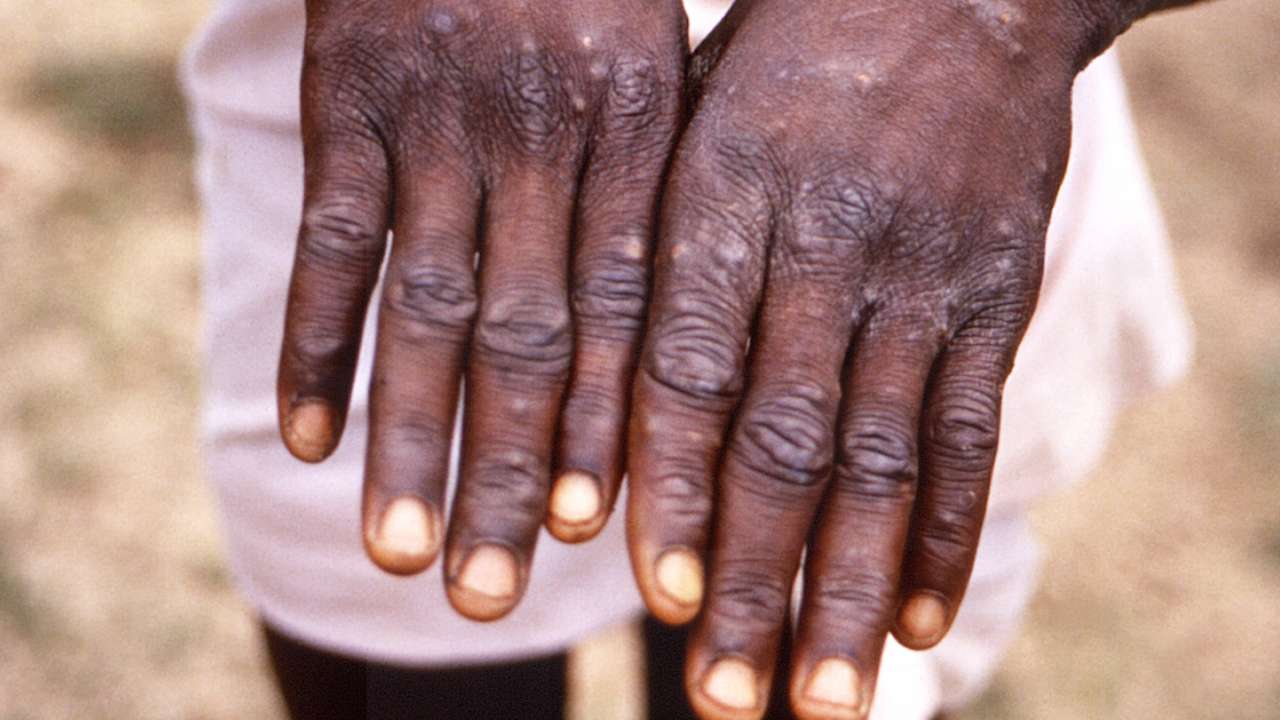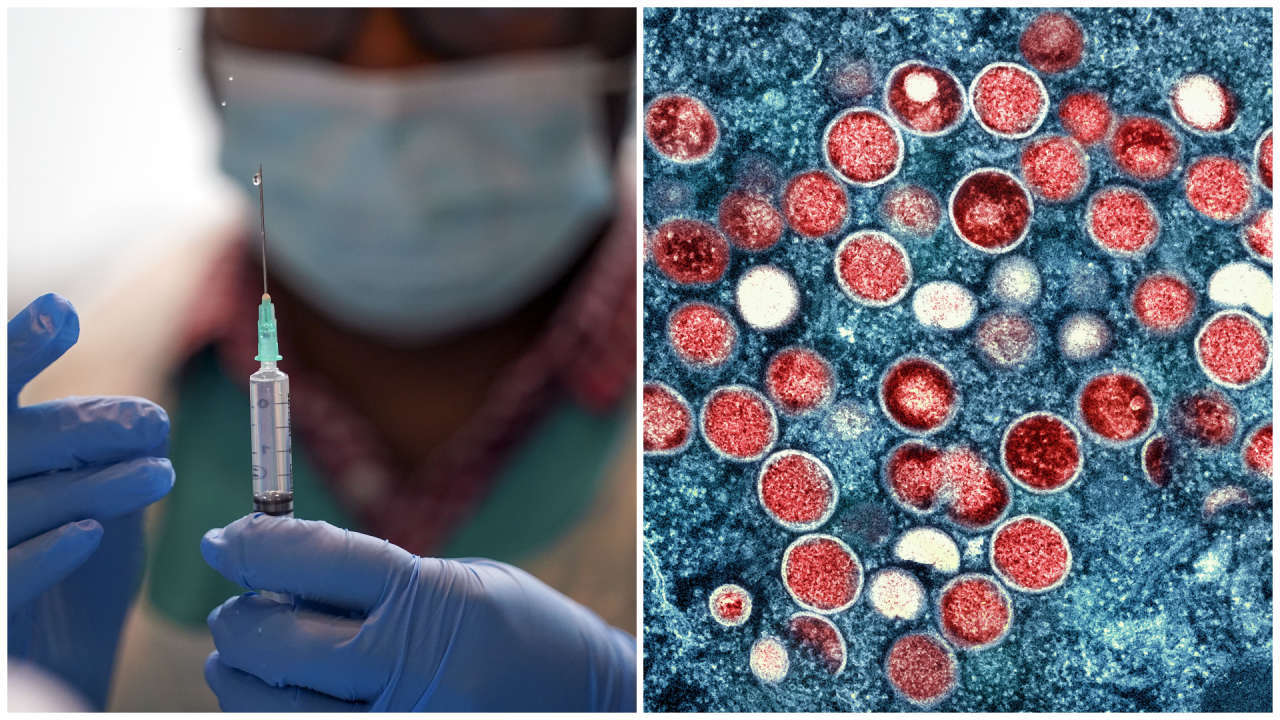It follows a public health emergency declaration that the Africa Centres for Disease Control and Prevention made for the continent on Tuesday.
Mpox – previously known as monkeypox – is a highly infectious disease most commonly found in west or central Africa.
The latest strain of the virus, clade Ib, is more infectious and more deadly, sparking concern among authorities.
On Thursday, the first case of the new mpox strain outside of Africa was reported in Sweden.
Experts around the world are monitoring the situation closely. For now, the current risk to the UK is thought to be low.
What exactly is mpox and how worried should you be? ITV News explains.

What is mpox and how does it spread?
Mpox is an infection that can cause symptoms like a high temperature, a rash, and muscle aches.
It is caused by the mpox virus and can be spread from person to person through close contact.
This includes:
- touching clothing, bedding or towels used by someone with the mpox rash
- touching mpox skin blisters or scabs
- through the coughs or sneezes of a person with a mpox rash
In parts of central and west Africa, mpox can be caught from an infected animal if you’re bitten or if you touch its blood, body fluids, spots, blisters or scabs.
It may also be possible to catch mpox by eating meat from an infected animal that has not been cooked thoroughly, or by touching other products from infected animals (such as animal skin or fur).
What are the symptoms?
It usually takes between five and 21 days for the first symptoms of the infection to appear.
According to the NHS website, the first symptoms of mpox include:
- a high temperature
- a headache
- muscle aches
- backache
- swollen glands
- shivering (chills)
- exhaustion
- joint pain
A rash, which often begins on the face before spreading, usually appears one to five days after the first symptoms.

The rash, sometimes confused with chickenpox, starts as raised spots before becoming small fluid-filled blisters. The blisters eventually form scabs and later fall off.
Most people recover within a few weeks but severe illness can occur in some individuals.
Who is at risk of contracting mpox?
The risk of contracting mpox in the UK is low.
In 2023 and 2024, there have been 286 cases of reported mpox cases in the UK.
According to the NHS website, you’re unlikely to have mpox if you have not been in close contact with someone who has mpox or mpox symptoms, or you have not recently travelled to west or central Africa.
The UK Health Security Agency (UKHSA) said that while anyone can catch mpox, the majority of UK cases are in gay, bisexual and other men who have sex with men.
Subscribe free to our weekly newsletter for exclusive and original coverage from ITV News. Direct to your inbox every Friday morning.
How dangerous is mpox – and what is the treatment?
Mpox is usually a mild illness and most people recover within a few weeks without needing treatment.
But if symptoms are more severe and a person becomes unwell, hospital treatment may be needed.
Older people, young children and people with a condition may be at higher risk of needing treatment.
Because mpox is passed on through close contact, the NHS advises you to isolate if you are diagnosed.
If your symptoms are mild, you may be asked to isolate at home.
Is there a vaccine?
Mpox is caused by a similar virus to smallpox, and the smallpox vaccine should give a good level of protection against mpox, according to the NHS.
The NHS is offering smallpox vaccinations to people who are most likely to be exposed to mpox, including:
- some healthcare workers
- some men who are gay, bisexual or have sex with other men
- people who have been in close contact with someone who has mpox
Want a quick and expert briefing on the biggest news stories? Listen to our latest podcasts to find out What You Need To Know…
Follow STV News on WhatsApp
Scan the QR code on your mobile device for all the latest news from around the country


 ITV
ITV




















